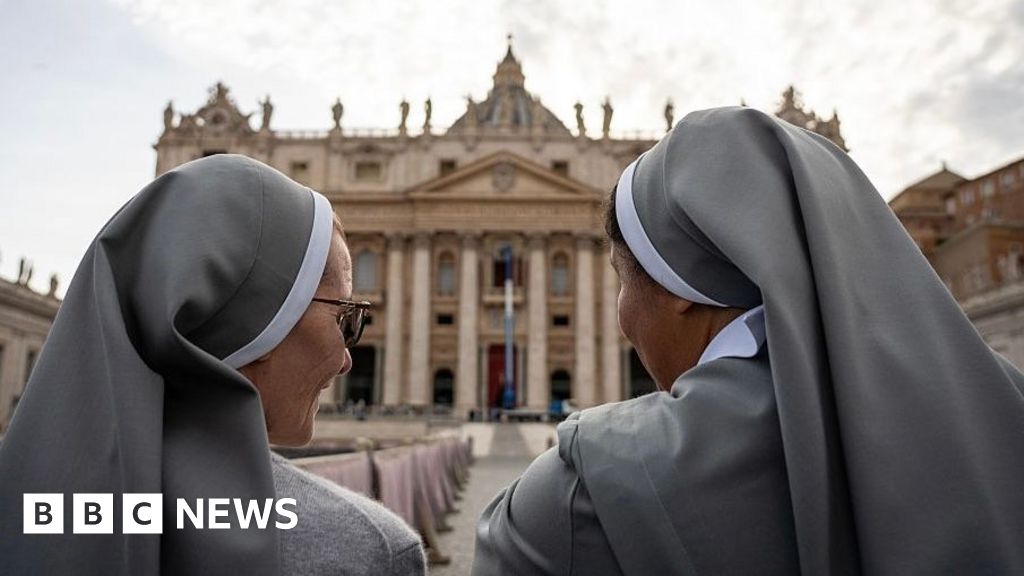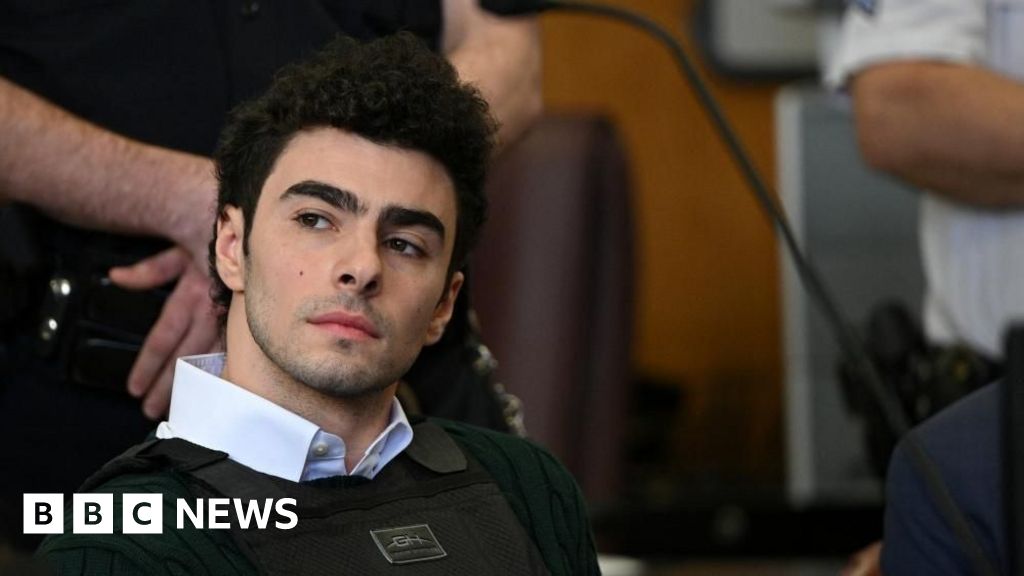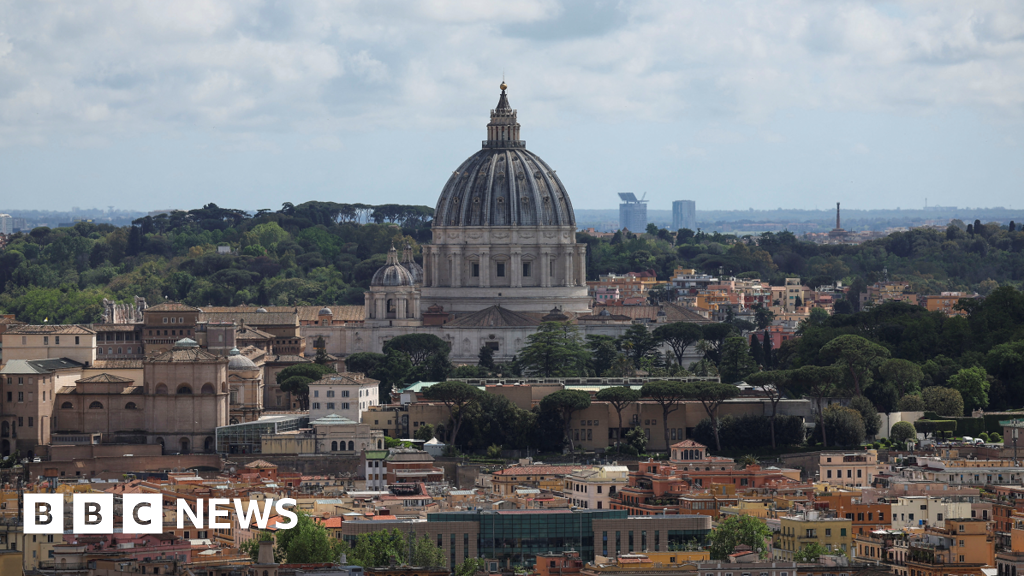ARTICLE AD BOX
 Image source, Francesco Tosto/BBC
Image source, Francesco Tosto/BBC
Jenin's walls are covered with the pictures of young armed men killed by Israeli forces
By Lucy Williamson
BBC News, Jenin
Since the war in Gaza began, Israel's military operations in the occupied West Bank have become more frequent, and more forceful.
The northern city of Jenin - the epicentre of these raids before the Hamas attacks - is now a weekly battleground.
The Palestinian teenagers I met who were running from the army there on Tuesday had the sceptical dismissive attitudes of much older men - mocking the Palestinian president and his appeals to the world for protection against Israel's occupation.
Behind them, Israel's armoured bulldozers and military jeeps moved around the entrance to Jenin refugee camp, explosions and gunfire from across the city echoing along the deserted, shuttered streets.
The walls of this city are covered with the pictures of young men killed by Israeli forces - some of them members of armed groups like Hamas, proscribed as a terrorist organisation by the UK and others. The posters and the faces are refreshed, year after year.
Six men were killed in the operation here on Tuesday; four of them in a drone strike, witnesses said.
Israel says its operations in the West Bank are targeting members of armed groups, often those with Israeli blood on their hands.
Image source, Francesco Tosto/BBC
Image caption,Smoke rises over houses during an Israeli military raid in Jenin on Tuesday
But the director of Jenin's hospital, Wissam Bakr, said a chronically ill 13-year-old child also died after being blocked from reaching medical care.
"The persistence of the incursions into Jenin, and the killing of young people - this will make the people more and more angry, because every day we lose one of our friends," he said.
"This will not bring peace for Israel - this will bring more and more resistance."
On 7 October, Hamas gunmen from Gaza attacked southern Israel, killing 1,200 people and taking 240 others hostage. More than 18,400 people are said to have been killed in Gaza during the war that followed.
Here in the West Bank, 271 Palestinians, including 69 children, have been killed since the attacks - more than half the total number for the year. Almost all of them have been killed by Israeli forces, according to the United Nations.
Since the Hamas attacks, support for armed resistance has risen in many parts of the West Bank - in places like Nablus and Jenin.
"I see it in the voices of people, in the music they play in their cars, from Facebook or social media posts, from my debates with my students," said Raed Debiy, a political scientist and youth leader for the West Bank's ruling party, Fatah, which dominates the Palestinian Authority (PA).
He told me the attacks were "a turning point" for Palestinians, just as they were a shocking turning point for Israelis.
"The people, especially the new generation, are backing Hamas now, more than at any other moment," he told me. "In the previous 30 years, there were no models, no idols for the new generation; now they see there is something different, a different story is being created."
Even his 11-year-old nephew, he said, had little respect for Palestinian President Mahmoud Abbas, but idolises Hamas military spokesman Abu Obeida - "because he protects us".
Image source, Francesco Tosto/BBC
Image caption,Political scientist Amjad Bushkar predicts a "real integration" between Hamas and Fatah
"Palestinian youth had priorities and wish lists about owning a house, or getting a degree," explained West Bank political scientist Amjad Bushkar.
"But after 7 October, I think these priorities have totally changed. There are rising voices for full liberation of the homeland through resistance - whether that resistance is peaceful or armed."
Dr Bushkar told me that he had spent a total of nine years in Israeli jails, and had been a member of Hamas's student wing in the past. Seven members of his family had been arrested since the 7 October attacks, he added.
Hamas members in the West Bank have regularly been targeted by Palestinian security forces - not just Israeli ones - since the group took control of Gaza by force in 2007, a year after it won parliamentary elections.
But now, Dr Bushkar said, something had changed.
"Both Fatah and Hamas are well aware that they are complementary to each other, and I think we'll see real integration between the two movements."
"The Palestinian Authority realised that targeting Hamas would not eradicate it because it's an ideological movement rooted within the Palestinian people; and Hamas is fully aware that it cannot establish an independent [Palestinian] state without the help of Fatah."
Some senior figures in the Palestinian administration - though not President Abbas - are now openly talking about the benefits of a united political front.
Earlier this month, Palestinian Prime Minister Mohammad Shtayyeh said in an interview with Bloomberg that the Palestinian Authority's preferred outcome of the war in Gaza would be for Hamas to join a unity government led by the PA.
Image source, Francesco Tosto/BBC
Image caption,There has been a parallel surge in violence in the West Bank since the start of the war between Israel and Hamas
Qossay Hamed, an expert in Hamas at Al-Quds Open University in Ramallah, says the crisis in Gaza could end up strengthening the movement's political wing, at the expense of its military one.
"In any revolutionary movement, there should be a political harvest to [military] actions," he said.
"There are so many trends within Hamas. And there are internal clashes. I think there will be more room for the political trend within Hamas, especially after this war, when the whole world will not be tolerant towards them."
Israel says its goal in Gaza is to destroy Hamas, and has ruled out a role for either it or Fatah in Gaza's future government.
"I will not allow the entry into Gaza of those who teach terrorism, support terrorism and finance terrorism," Prime Minister Benjamin Netanyahu said on Tuesday.
"Gaza will be neither Hamas-stan nor Fatah-stan,"
Some Palestinians privately say the price paid by Gaza for the Hamas attacks is too high.
But others say the group's brutal tactics worked in forcing Israel to release Palestinian prisoners - and contrast its impact sharply with that of the Palestinian Authority, set up 30 years ago after the Oslo Accords to work with Israel on a future Palestinian State.
Since the attacks, said Amjad Bushkar, "the world and the international community have put the Palestinian cause on its list of priorities."
Widely seen as corrupt and ineffective, the PA has also been unable to pay its civil servants or police since the Hamas attacks, because the war in Gaza caused a rift over the tax revenues transferred by Israel each month.
While Hamas flags and slogans multiplied here in the wake of each busload of Palestinian prisoners released by Israel in exchange for Israeli hostages held in Gaza, the PA's president and security forces were conspicuously absent.
Israel may be determined to deny Hamas power in Gaza, but here in the West Bank its influence is already spreading.

 1 year ago
129
1 year ago
129








 English (US) ·
English (US) ·